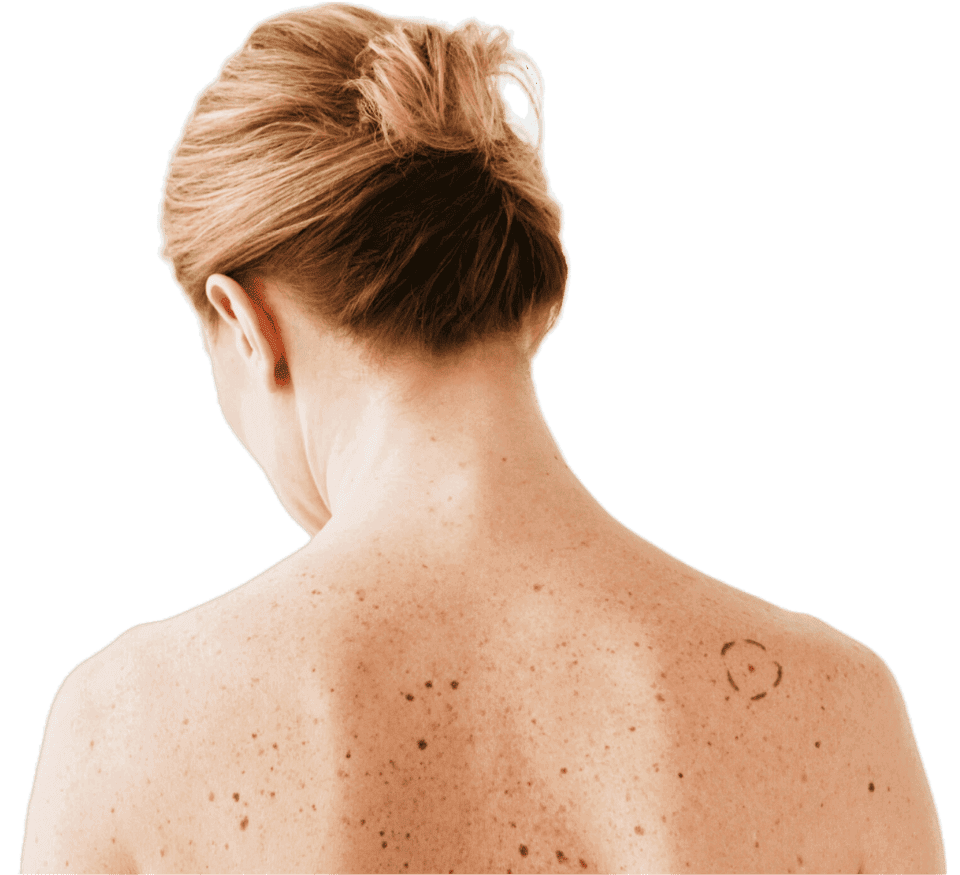Skin Cancer Basal Cell Carcinoma Treatment in Shrewsbury
Skin Cancer is the most common form of cancer in the U.K. There are three types of skin cancer: Basal Cell Carcinoma, Squamous Cell Carcinoma, and Malignant Melanoma. We are dedicated to providing exceptional care in the diagnosis, treatment, and prevention of all three.
Early detection is key to successful treatment, with a 100% chance of survival if caught in time. At St. Michael’s Clinic, we use the latest diagnostic techniques, including comprehensive skin examinations and digital dermatoscopy, to identify skin cancer at the earliest possible stage.
By catching skin lesions early, our patients benefit from a broader range of treatment options, often less invasive and with a faster recovery time. Whether it’s Mohs surgery, excisional surgery, or non-invasive treatments, our clinicians are equipped to provide the highest standard of care.
Take charge of your skin health with a comprehensive evaluation of your options by a Consultant Dermatologist. Book a consultation now to get started!

20 Years of Experience
Award Winning Dermatology Service
Short Waiting Lists
Offering Same Week Appointments
Safe Environment
CQC Approved Facilities
BASAL CELL CARCINOMA (BCC) TREATMENT
Mohs Surgery
Surgical Excisions
Photodynamic Therapy
Topical Creams
Topical creams offer a convenient and non-invasive treatment option by directly targeting cancer cells on the skin’s surface. Applied over several weeks, some creams like stimulate the body’s immune response or directly destroy cancer cells, which is particularly effective for superficial BCC lesions or those in challenging areas. They provide minimal discomfort and good cosmetic outcomes.
Freezing Spray
HOW TO PAY
We offer three easy ways to pay, tailored to fit your financial needs, so you can prioritise your treatment options without compromising your skin’s health.
0% Finance
Spread the cost of your treatment over 3, 6 or 12 months with 0% APR Finance plans.
Insurance
We work with all insurers, giving you peace of mind and minimal out-of-pocket expenses.
Self-Fund
Self-Fund for flexibility and control over your treatment choices without the constraints.
WHY CHOOSE US?

- Wealth of Experience
- Led By Consultant Dermatologists
- Care Quality Commission Regulated
- British Association of Dermatologists Registered
- We Accept All Major Insurers
MALIGNANT MELANOMA TREATMENT FAQ
HEAR FROM OUR PATIENTS
During your consultation, all your treatment options will be discussed and your dermatologist will advise on the most suitable treatment.
CLINIC DETAILS
St. Michael’s Street,
Shrewsbury,
SY1 2HE
Mon: 8:30am - 6:00pm
Tue - Fri: 9:00am - 5:00pm
Sat - Sun: Closed
REQUEST A CALL BACK
Arrange your consultation with our expert today!
2024 © St Michaels Clinic.
Registered Address: Unit 2, Park Farm Akeman Street, Kirtlington, Kidlington, Oxon, England, OX5 3JQ. The material on this site is for informational purposes only and is not a substitute for medical advice, diagnosis or treatment provided by a qualified health care provider.
